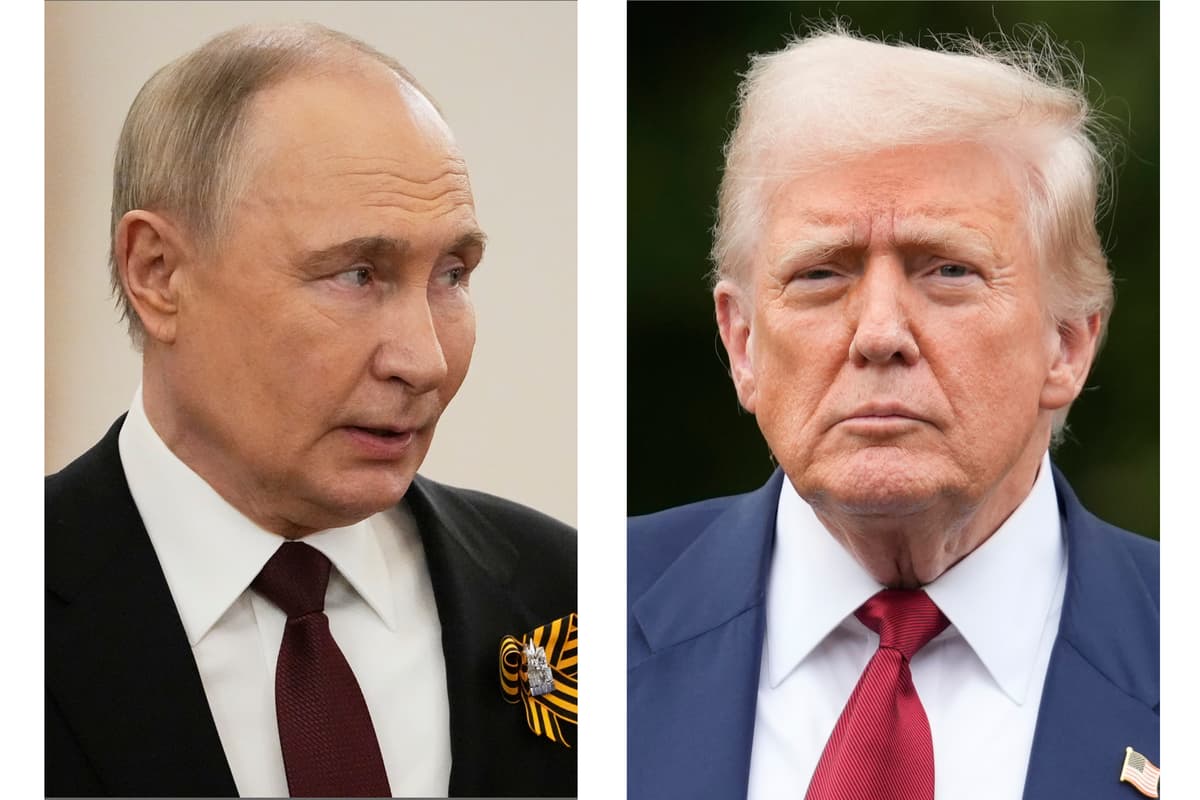Will Putin Learn the Lesson of Trump’s Triumph at Sharm El-Sheikh?
America’s president is patient, but there is a limit to his patience. Then, he is relentlessly effective in imposing his will.

President Trump’s recent visits to Jerusalem and Sharm El-Sheikh were unimaginably historic.
There was a long standing ovation in the Knesset. People held signs and wore hats that proclaimed “Trump, The Peace President.” Crowds in Israel and Gaza chanted Mr. Trump’s name.
At Sharm El-Sheik, leaders from 27 countries stood in line for photo opportunities with the American president.
After the 77 years of struggle since the founding of Israel on May 14, 1948, a new world of Middle Eastern peace was emerging.
The most interesting question about the aftermath of this historic day was: What will Vladimir Putin learn from it?
The president was clear that peace between Israel and Hamas happened because America was willing to support Israel in waging war after the vicious Hamas attacks on October 7, 2023.
Diplomacy was working because the military crushed Israel’s enemies — Hezbollah in Lebanon and Hamas in Gaza — and crippled Houthis in Yemen and the ayatollah’s dictatorship in Iran. In the process, the Assad dictatorship collapsed in Syria and forces less hostile to Israel emerged there and in Lebanon.
The American B-2 bombers that took off in Missouri and decisively destroyed Iranian nuclear facilities were the final blow to the anti-Israeli coalition. Of course, the Israeli air force — with American support — previously destroyed the Iranian air defense system to enable the attack.
If Mr. Putin left his Russia-centric fantasy world and faced reality, he would conclude several things from this experience.
Mr. Trump is patient, but there is a limit to his patience. Then, he is relentlessly effective in imposing his will.
Mr. Trump is capable of patiently assembling an enormous coalition to achieve his goals (think rebuilding Gaza and creating a post conflict Gaza-Israel relationship).
He is unaffected by news coverage and so-called expert criticism. He relies on his own network of friends and advisers and moves at his own pace. Mr. Trump can be extraordinarily attentive, decisive, and tough. Only he understands his own inner calculus.
It would be disastrous for Mr. Putin to confuse Mr. Trump’s patience with tolerance for being ignored or pushed around.
The truth is, Mr. Trump has methodically pursued regional peace in the Middle East since his March 21, 2016, speech to the America-Israel Public Affairs Committee (which his son-in-law Jared Kushner played a major role in drafting). It took nine years, but when it came to fruition it changed world history.
Similarly, Mr. Trump has been consistent in his view of Russia’s attack on Ukraine. His first priority has been to get to a ceasefire to save lives. His second priority has been to help the Ukrainians so they can survive despite Russian aggression.
His third priority has been to build an expansive, tough sanctions regime that imposes economic pain on Russia. His fourth priority has been to steadily increase Ukraine’s military capability so Mr. Putin will never be able to conquer the whole country.
His fifth priority has been to get the Europeans to do dramatically more to save a country on their continent and protect their neighborhood. His final priority has been to goad the Europeans into building a strong, modern military so they can eventually contain and — if needed — defeat Russia on their own.
There is a grave danger that Mr. Putin — as an increasingly isolated, aging dictator — will refuse to recognize reality and will see patience as weakness.
With every passing month, the American support of Ukraine is going to grow. Europe is going to become more militarily competent and engaged in helping Ukraine.
Mr. Putin’s lesson from Sharm El-Sheik is to cut his losses — before they grow dramatically. Time will tell if he learned anything from this week’s historic breakthroughs.

